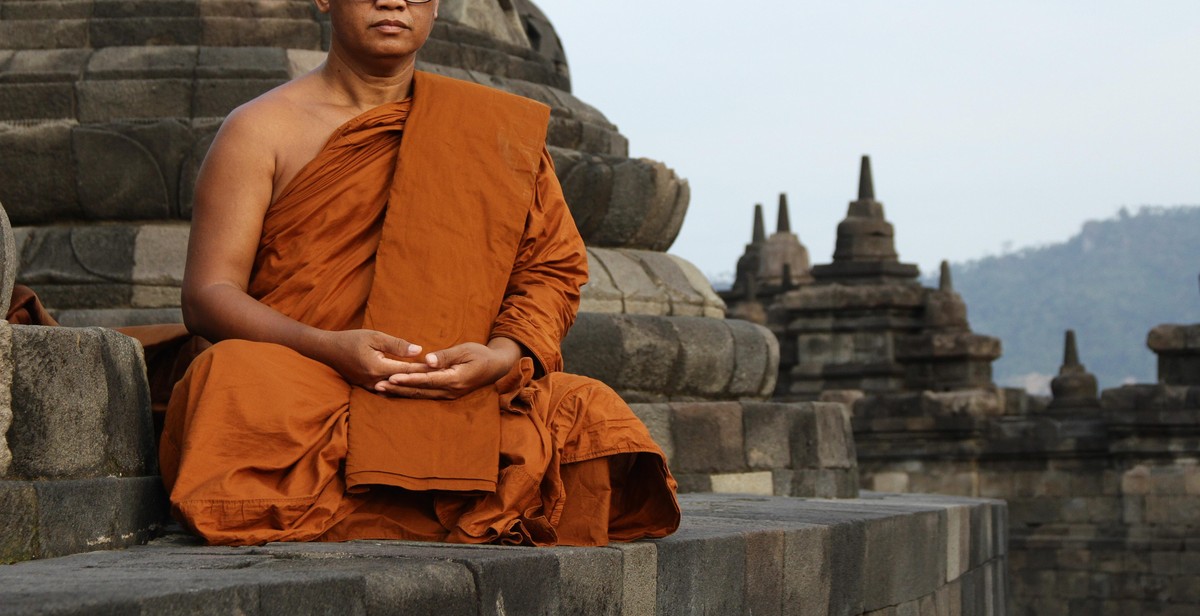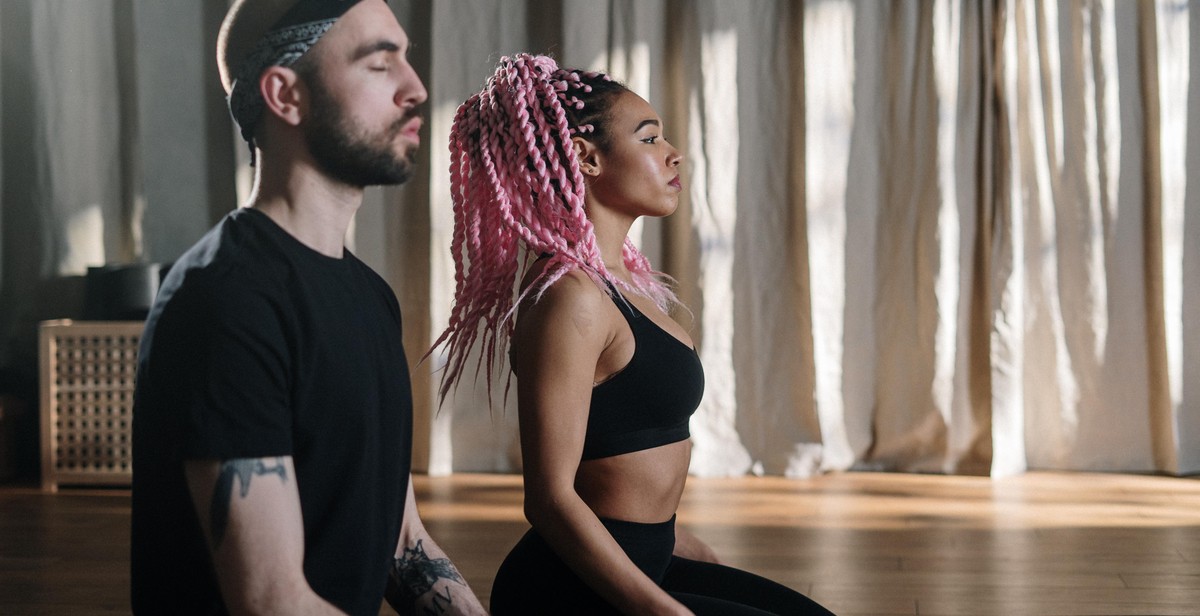Introduction: Enhancing Athletic Performance with Meditation
Athletic performance is not only dependent on physical strength and skills, but also on mental focus and agility. Meditation is a powerful tool that can help athletes enhance their performance by improving their mental and emotional well-being. Meditation has been practiced for thousands of years and has been proven to increase focus, reduce stress, and boost overall health and well-being.
In recent years, meditation has gained popularity as a performance-enhancing practice among athletes. From professional athletes to weekend warriors, many athletes are turning to meditation to gain an edge in their sport. Whether you are a runner, a weightlifter, a basketball player, or any other type of athlete, meditation can help you improve your performance.
The Benefits of Meditation for Athletes
There are many benefits of meditation for athletes. Here are some of the most significant:
- Improved focus: Meditation can help athletes improve their focus and concentration, which is essential for success in sports.
- Reduced stress: Sports can be stressful, and meditation can help athletes manage stress and anxiety.
- Increased resilience: Meditation can help athletes develop resilience, which is essential for bouncing back from setbacks and injuries.
- Better sleep: Meditation can improve sleep quality, which is crucial for athletes to perform at their best.
- Enhanced recovery: Meditation can help athletes recover faster from injuries and workouts.
Overall, meditation is a valuable tool that can help athletes improve their performance, mental and emotional well-being, and overall quality of life.

Benefits of using meditation for athletic performance
Athletes are always looking for ways to improve their performance and gain a competitive edge. While physical training and nutrition are essential, mental preparation is often overlooked. Meditation is a powerful tool that can enhance athletic performance in many ways. Here are some of the benefits of using meditation:
Improved focus and concentration
One of the primary benefits of meditation for athletes is improved focus and concentration. During meditation, you learn to focus your attention on a single point, such as your breath or a mantra. This practice helps you develop mental discipline and the ability to stay focused on your goals. With improved focus and concentration, athletes can perform better under pressure and stay in the zone for longer periods.
Reduced stress and anxiety
Stress and anxiety are common among athletes, especially before competitions. Meditation is an effective tool for reducing stress and anxiety, as it helps you relax and calm your mind. When you meditate, you activate the parasympathetic nervous system, which is responsible for the “rest and digest” response. This response helps lower your heart rate, blood pressure, and cortisol levels, reducing stress and anxiety.
Increased self-awareness and mindfulness
Meditation also helps athletes develop self-awareness and mindfulness. When you meditate, you become more aware of your thoughts, emotions, and physical sensations. This awareness can help you identify and manage negative thoughts and emotions that can affect your performance. Mindfulness also helps athletes stay present and focused on the task at hand, rather than worrying about the past or future.
Overall, meditation is a powerful tool that can help athletes enhance their performance, both physically and mentally. By improving focus and concentration, reducing stress and anxiety, and increasing self-awareness and mindfulness, athletes can perform at their best and achieve their goals.

Types of Meditation for Athletes
There are various types of meditation that athletes can use to enhance their performance. Here are three of the most popular:
Mindfulness Meditation
Mindfulness meditation involves focusing on the present moment and being aware of your thoughts and feelings without judgment. This type of meditation can help athletes improve their focus, reduce stress, and increase their overall sense of well-being.
Athletes can practice mindfulness meditation by finding a quiet place to sit or lie down and focusing on their breath. When thoughts or distractions arise, they can acknowledge them without judgment and then bring their attention back to their breath.
Visualization Meditation
Visualization meditation involves using your imagination to create mental images of your desired outcome. This type of meditation can help athletes improve their confidence, reduce anxiety, and enhance their performance.
Athletes can practice visualization meditation by finding a quiet place to sit or lie down and imagining themselves successfully completing their desired outcome. They can use all of their senses to create a vivid mental picture, including what they see, hear, feel, and even smell.
Body Scan Meditation
Body scan meditation involves focusing on each part of your body and noticing any sensations or feelings. This type of meditation can help athletes improve their body awareness, reduce muscle tension, and improve their recovery time.
Athletes can practice body scan meditation by finding a quiet place to lie down and focusing on their breath. They can then bring their attention to each part of their body, starting at their toes and working their way up to their head, noticing any sensations or feelings along the way.
| Type of Meditation | Benefits |
|---|---|
| Mindfulness Meditation | Improved focus, reduced stress, increased well-being |
| Visualization Meditation | Improved confidence, reduced anxiety, enhanced performance |
| Body Scan Meditation | Improved body awareness, reduced muscle tension, improved recovery time |

How to incorporate meditation into your athletic routine
Meditation is a powerful tool that can help athletes enhance their performance and improve their overall well-being. Here are some tips on how to incorporate meditation into your athletic routine:
1. Start with short sessions
If you are new to meditation, it is important to start with short sessions and gradually increase the duration. You can start with just 5 minutes a day and gradually work your way up to 20-30 minutes. This will help you build a consistent meditation practice without feeling overwhelmed.
2. Find a quiet and comfortable space
Find a quiet and comfortable space where you can meditate without any distractions. This could be a quiet room in your house, a park, or any other place where you feel relaxed and at peace. Make sure to sit in a comfortable position with your back straight and your feet on the ground. You can also use a cushion or a chair to support your back if needed.
3. Use guided meditations
Guided meditations can be a great way to start your meditation practice. There are many apps and websites that offer guided meditations specifically designed for athletes. These meditations can help you focus on your breath, visualize success, and stay motivated during your workouts.
4. Practice regularly
Consistency is key when it comes to meditation. Make sure to practice regularly, ideally every day. You can set aside a specific time each day for your meditation practice, such as first thing in the morning or before bed. The more you practice, the easier it will become to focus your mind and stay present during your workouts.
By incorporating meditation into your athletic routine, you can improve your focus, reduce stress and anxiety, and enhance your overall performance. So why not give it a try and see how it can benefit you?

Success Stories of Athletes who use Meditation
Meditation has been shown to have numerous benefits for athletes, including increased focus, reduced stress, and improved performance. Here are some success stories of athletes who have incorporated meditation into their training:
Kobe Bryant
Kobe Bryant, the late NBA legend, was known for his intense focus and mental toughness on the court. He credited meditation as a key part of his training regimen, saying that it helped him stay calm and focused during high-pressure situations.
Bryant started meditating in 2012 after suffering a knee injury. He worked with mindfulness expert George Mumford to develop his meditation practice, and he would often meditate before games and during halftime.
“I meditate every day,” Bryant said in an interview with Oprah Winfrey. “I usually do it in the morning to start my day. It helps me to find a certain calmness and focus.”
Novak Djokovic
Novak Djokovic, one of the greatest tennis players of all time, is also a dedicated meditator. He started meditating in 2011 and has since credited it with helping him manage stress and stay focused during matches.
“Meditation has helped me to be more present and to focus on the task at hand,” Djokovic said in an interview with The Guardian. “It’s also helped me to stay calm and not get too emotional on court.”
Djokovic has even incorporated meditation into his pre-match routine. He will often meditate for 15 minutes before a match to help him get into the right mindset.
Michael Jordan
Michael Jordan, widely considered the greatest basketball player of all time, was known for his fierce competitiveness and mental toughness. He also practiced meditation as part of his training regimen.
Jordan started meditating in the 1990s after meeting with mindfulness expert George Mumford. Mumford taught Jordan and the Chicago Bulls mindfulness and meditation techniques to help them stay focused during games.
“Meditation helped me to slow down and be more present,” Jordan said in an interview with Oprah Winfrey. “It also helped me to stay focused and not get distracted by outside noise.”
| Athlete | Sport | Benefits of Meditation |
|---|---|---|
| Kobe Bryant | Basketball | Increased focus, reduced stress, improved performance |
| Novak Djokovic | Tennis | Stress management, improved focus, emotional regulation |
| Michael Jordan | Basketball | Improved focus, mental toughness, reduced distractions |

Conclusion
Overall, incorporating meditation into an athlete’s training regimen can have significant benefits for both their physical and mental performance. By practicing mindfulness and focusing on the present moment, athletes can improve their ability to handle stress, regulate their emotions, and stay focused during competition.
Through meditation, athletes can also improve their physical performance by increasing their body awareness, enhancing their breathing patterns, and promoting better sleep and recovery. In addition, meditation can help athletes cultivate a deeper sense of purpose and motivation, which can help them stay committed to their training and achieve their goals.
It’s important to note that meditation is not a quick fix or a replacement for hard work and training. Rather, it’s a tool that can enhance an athlete’s overall performance and well-being. To get the most out of meditation, athletes should practice regularly and find a technique that works best for them.
Whether you’re a professional athlete or a weekend warrior, incorporating meditation into your training routine can help you achieve your goals and perform at your best. By taking the time to focus on your mind and body, you can unlock your full potential and reach new levels of success.
